The Pakistan plan hinged on two critical assumptions: India would not be able to replenish supplies quickly to launch a counter-attack.
India could not respond in enough strength to dislodge the Pakistanis.
Both assumptions would be proved wrong due to the ferocity of the Indian response, reveals former RA&W Tilak Devasher in his new book, Pakistan At The Helm.
An exclusive excerpt:
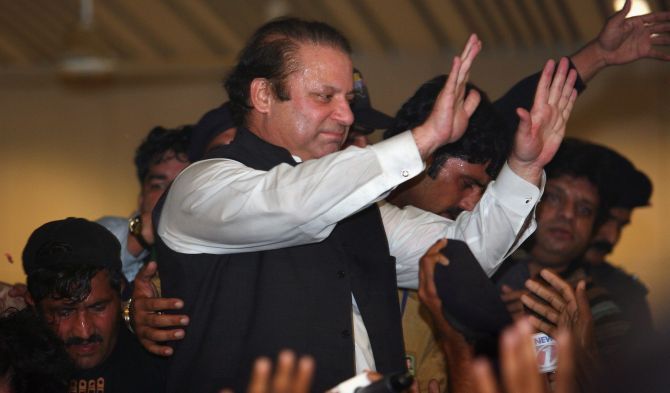
Prior to its actual implementation, the Kargil operation had been considered at least twice earlier and rejected on both occasions.
The first occasion was during the tenure of Zia-ul Haq.
The second time the operation was mooted was under the Benazir Bhutto government.
Benazir remembered a presentation made during her second term at the joint staff headquarters chaired by Air Chief Marshal Farooq Feroze Khan.
She had subjected the then director general of military operations Pervez Musharraf to a series of questions that also contested his political claim that by taking Srinagar, Pakistan would have won.
She opposed the idea on the 'concrete grounds that it was not a political reality to think that you could go into Srinagar and put a flag... because there were other international treaties and United Nations resolutions that could also be brought into force and a particular power situation in the world'.
The common grounds for rejecting the plan on both occasions was the same -- that it would lead to a full-scale war with India, something that Pakistan was not prepared for.
The third time, the planners were successful since it was Musharraf who was in charge.
What Musharraf sought to achieve by the Kargil intrusions was to threaten the main Indian supply route, National Highway 1A, linking Srinagar to Leh via Dras and Kargil.
This was in retaliation for India interdicting the Neelam Valley Road in Pakistan occupied Kashmir.
The whole plan hinged on two critical assumptions: India would not be able to replenish supplies quickly to launch a counter-attack even though Pakistan had no information on Indian reserve stocks in Leh and beyond; India would not or could not respond in enough strength to dislodge the Pakistanis.
Both assumptions would be proved wrong due to the ferocity of the Indian response.
The moot question in the whole Kargil fiasco was whether (the then prime minister) Nawaz (Sharif) was briefed about the operations and if he gave the go-ahead.
In his book In the Line of Fire, Musharraf writes that the army briefed the prime minister in Skardu on January 29, 1999 and in Kel on February 5, 1999 when Pakistan's 'defensive manoeuvre' was explained as a response to developments in Indian Kashmir.
'Nawaz was also briefed on March 12 at the Inter-Services Intelligence headquarters. This included a comprehensive review of the situation inside 'Occupied Jammu and Kashmir' as also along the Line of Control.'
'Subsequently, the DGMO briefed him in detail on May 17 and briefings were also held on June 2 and June 22'.
According to Nawaz, the briefing by the army in Skardu was about tourism while the meeting in Kel was in the open air. Tourists were roaming about in the area so there was no way a sensitive issue like Kargil could have been discussed.
Musharraf's assertion has also been sharply contradicted by Sartaj Aziz, the then foreign minister who was present during the February 5 briefing.
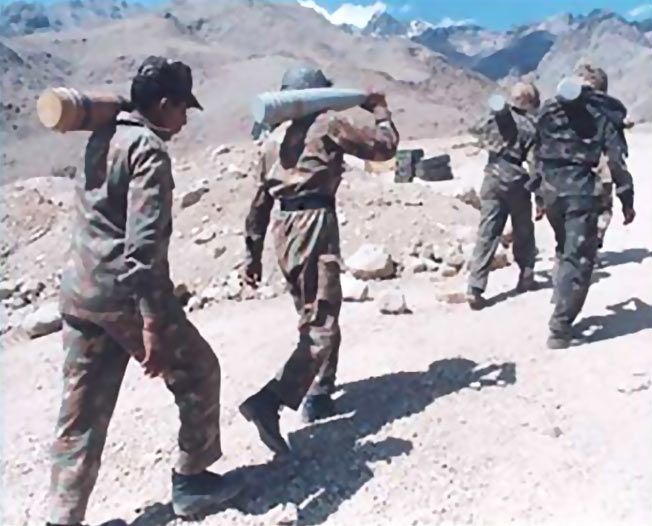
In fact, if what Musharraf says is true, Nawaz knew about the operation even before the Lahore bus yatra of Prime Minister (Atal Bihari) Vajpayee on February 20, 1999.
This would be an astounding act of betrayal and deceit on the part of Nawaz Sharif.
According to Sartaj Aziz, by March 1999, the mujahideen with the assistance of the Northern Light Infantry had occupied several heights in the Kargil-Dras sector.
It was only then that General Musharraf and his team decided to 'brief' the prime minister on March 12-13, 1999 about the operation, and that too only obliquely.
What the briefing did was to flag the increased 'mujahideen' activity inside Kashmir, especially in the Kargil-Dras sector and a plan to provide them stinger missiles.
Such activity was felt to have a beneficial impact on the Kashmir negotiations since India would be forced to accept the urgency of a solution.
Aziz is categorical that no mention was made about the role of the Pakistani army or paramilitary personnel or crossing the LoC to occupy any positions.
Sharif agreed to go ahead, but quite possibly his nod was based on his understanding that regular troops were not involved in the operation and it was only a question of putting pressure on India.
Nawaz would have undoubtedly been looking to cash in if the 'mujahideen' succeeded.
In an interview to Shuja Nawaz, Lieutenant General Ziauddin, the man whom Nawaz appointed as army chief to replace Musharraf in October 1999, made some interesting revelations that show Nawaz in a poor light.
According to him, it was at the May 17, 1999 briefing that discussions were held on the Kashmir operations in general and Kargil in particular.
He recalled Nawaz saying: 'This is a military operation. All I can stay is that there should be no withdrawal, no surrender of any post because that will greatly embarrass us.'
Hence, in Ziauddin's view, Sharif was fully in the picture from then on.
Musharraf also claimed that in 1999, Pakistan's nuclear capability was not yet operational -- exploding a bomb did not mean that a nuclear force could be deployed or a bomb could be delivered on a selected target.
Thus, 'talks of preparing for nuclear strikes was preposterous'.
Interestingly, neither Nawaz nor Musharraf mention the June 24-25, 1999 visit of the United States Centcom commander General Anthony Zinni.
He had been directed by the White House to lead a presidential mission to Pakistan to prevail upon Nawaz and Musharraf to withdraw their forces from Kargil.
In his meetings, Zinni told them: 'If you don't pull back, you're going to bring war and nuclear annihilation down on your country. That's going to be very bad news for everybody.'
According to Zinni, neither Musharraf nor Nawaz argued with this reasoning.
He realised, however, that the problem was the national humiliation that the Pakistan leadership would have to bear.
Thus, what was needed was 'a face-saving way out of the mess'.
A meeting with President (Bill) Clinton was put on the table.
However, Zinni insisted that the meeting would be announced only after a withdrawal of forces.
In a subsequent interview with Shuja Nawaz, Zinni made the following points: First, he confirmed that Nawaz 'finally came around and he ordered the withdrawal' and a meeting with Clinton was set up for July.
Second, it was Musharraf who encouraged Prime Minister Sharif to hear Zinni out since earlier Nawaz was unwilling to meet him.
Third, in the meeting with Nawaz, Musharraf did not utter a word.
Fourth, Zinni recalled stating that he needed evidence of Pakistani preparation to pull back before Clinton would finally agree to a meeting. He told Shuja Nawaz that this happened soon after his return to Washington.
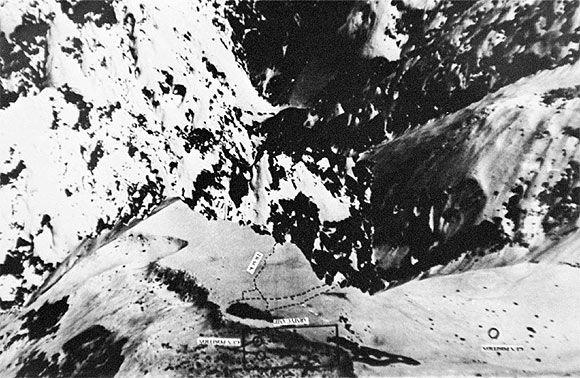
US satellites picked up movements indicating that the Pakistanis were getting ready to move back.
It was then that he gave the green light to the White House.
Clearly, according to Zinni's version, Musharraf was not only aware about the US suggestion for a withdrawal but assisted Zinni in making the argument for it before Sharif.
Additionally, he was also aware that the offer of a meeting with Clinton was dependent on agreeing to a withdrawal and Nawaz had, in fact, agreed to such a withdrawal in Musharraf's presence.
Some, like Gohar Ayub Khan, believe that Nawaz knew about the whole operation.
In an interview that he gave a Pakistani journalist that was later published as a book, Nawaz gave his version.
In it, Nawaz said he was not taken into confidence and when he was briefed, he was told that the army would not be involved, only the mujahideen.
However, in the operation, the entire Northern Light Infantry perished: 2,000 martyred and hundreds wounded; the death toll was higher than the 1965 and 1971 wars put together.
After such heavy losses, when he asked Musharraf about army losses, he said Indians were carrying out carpet-bombing, something they did not anticipate.
'I must tell you that when the Washington pact was concluded, the Indian Army had got Kargil vacated. They were advancing swiftly. It was I who saved our army from dishonour and disgrace.'
Nawaz also claimed that Musharraf came to the airport when he was leaving for the US, 'to plead with him to extricate the army from Kargil where the Indians had begun to make progress'.
Musharraf claimed that the ceasefire in Kargil was a military triumph.
In his words, 'The Kargil conflict emerged out of a tactical manoeuvre of limited dimensions but had significant strategic effects.'
However, to others, it was obvious that the Kargil operation lacked proper strategic planning.
As a senior air force officer put it 'his (Musharraf's) adventurous assault in Kargil had brought about an all-round embarrassment. Only Bill Clinton's intervention could help save us some face. General Musharraf still doesn't agree with this conclusion but there hasn't been a bigger strategic blunder in Pakistan's recent history.'
Instead of getting international support, all the major powers, including Pakistan's old ally China, asked Pakistan to revert to the LoC. Pakistan had to comply.
In the process, it was made obvious to the world that the so-called 'mujahideen' were being controlled by Pakistan.
Musharraf's tall claims about the Kargil operation contrasted harshly with the autopsies of dead Pakistani soldiers that revealed the presence of grass in their stomachs.
This indicated that the Pakistan army had left their soldiers on their own because of which they ran out of food supplies.
Excerpted from Pakistan At The Helm by Tilak Devasher, with the kind permission of the publishers, Harper Collins, India.








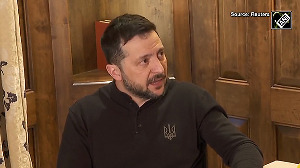
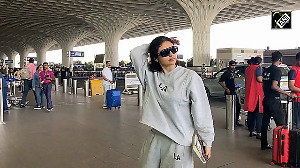

 © 2025
© 2025